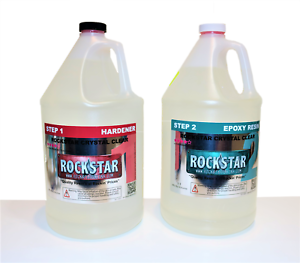Resin Epoxy is also called an adhesive which contains an artificial substance that sets hard when it is heated or by applying pressure. Resins is a complex and lipid-soluble mixture of various compound. Actually the resins are made up of diterpenoid and triterpenoid containing non-volatile fraction and volatile fraction. They are non-breakable as it has brittleness. The resin is an organic material that is not much harmful to us. Epoxy resin is considered as non-toxic, the risk of damage is caused because of the ingestion of epoxy resin.
PRODUCTION OF EPOXY RESIN
Mostly the epoxy resin is produced from the combination of two reactions that is between epichlorohydrin and the other is biphenyl-A and even more, it is replaced by raw materials.
TYPES OF EPOXY RESIN

There are two types of epoxy resin that are casting resins and synthetic resins. It is also has been given the name resins.
CASTING RESIN
The casting resin is a method of plastic casting in where the molding is fully filled with the synthetic resin which makes to hard for our use. The casting resin is temporarily used in small scale industries for a production like industrial prototypes and also in dentistry. The polyester resin is the best resin which has a hot short time generally 8 to 10 minutes and the surface exposed to air when the curing will remain stiffer.
SYNTHETIC RESIN
Synthetic resin is invented in the year 1930 which have been started in the year of 1870. Synthetic resin can be produced only from industries, which is typically viscous substance and convert into rigid polymers by the process of curing method. This type of epoxy resin stuff is made through polymerization and as well as polycondensation. They are used as a thermoset polymer that is used as adhesives. This epoxy resin is very strong. There are different types of plastic is made. It is the basic raw material of plastic which takes of thirty to sixty percent of its composition Scientists have discovered that a new range of thermoset resins which is made of renewable raw materials that are of complete biodegradable, non-toxic and even more non-hazardous. The example of synthetic resin is plastic which is most harmful to our human being and non-bio degradable. As it non-bio degradable it cannot be decomposed, plastic will not allow the natural plants to grow. Most of the agents have a certain toxicity today. Inhalation of the epoxy resin causes no more problems as they are not volatile.
PRODUCTS PRODUCED FROM EPOXY RESIN
It is environment-friendly as they can be built a new environment and get start a beautify around them. Epoxy resins manufacture the adhesive, paints, plastics, coatings, primers, sealers, flooring and other materials that are used in construction and for building applications, etc.
ADVANTAGES AND DISADVANTAGES
The main advantages in epoxy resin are it has low shrinkage while curing, moisture content, and chemical resistance, have good electrical properties and even more impact resistant. The defect of this epoxy resin is the adhesive force for the materials with low polarity, it doesn’t get toughening, and the curing agent of epoxy resin is generally brittle.

